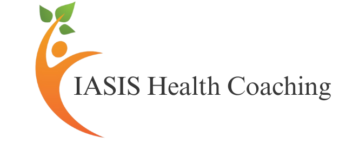Fearmongering in the Era of Unethical Marketing
In the landscape of health communication, maintaining a delicate balance between sharing facts and steering clear of unintentional fearmongering is vital. Negotiating this fine line is essential for health professionals committed to ethical practices. Fearmongering, the dissemination of exaggerated or misleading information to induce fear or anxiety, has unfortunately become a prevalent marketing tactic. This unethical approach is often employed by health professionals seeking to attract clients into purchasing unnecessary services, creating a prolonged dependency on their offerings.
Unintentional fearmongering further complicates the scenario. Consider the assertion by some nutritionists or dieticians that families embracing a vegan lifestyle must be continuously monitored by a professional for safety. While seemingly well-intentioned, this claim can instill unnecessary fear, overmedicalizing everyday life, and suggesting that a vegan diet is inherently risky without constant supervision.
One of my favorite books, “Ordinary Insanity: Fear and the Silent Crisis of Motherhood in America” by Sarah Menkedick, serves as a powerful reminder of the stress associated with unfounded fears, particularly among mothers. It reinforces the responsibility health communicators bear — the obligation to provide information that fosters understanding rather than anxiety.
Fostering Health Communication in the Era of Fearmongering
Within the challenges posed by fearmongering, fostering health communication becomes a mission of paramount importance. As health professionals, we approach this by empowering individuals through knowledge and critical thinking. We aim to guide clients in navigating the intricate landscape of health information, helping them discern between evidence-based concerns and fear-inducing misinformation.
Health communication is no easy task, especially when we need to inform clients about inconvenient truths based on evidence that necessitates behavioral change, which is never simple. In these situations, clients may react defensively, rooted in the denial of accepting that a change is needed. After all, who would like to hear that their favorite perfume is toxic, their beloved lipstick may contain heavy metals, and their preferred wine increases their cancer risk? In such scenarios, accusations of fearmongering may arise, even when we merely present the scientific evidence.
Striking the balance demands us to focus not only on providing scientific evidence supporting our advice but, more importantly, on helping the client see this information through the holistic prism that health decisions demand. Cultivating critical thinking and a holistic approach to health and well-being can assist individuals in assessing the risks they want to address and those they are comfortable taking. At the end of the day, one may be comfortable enjoying an occasional glass of wine, acknowledging that alcohol increases cancer risk, while also being informed about selecting a toxic-free deodorant for their teenage daughter.
Committing to Evidence while Nurturing Awareness and Critical Thinking
In an era where fearmongering can cloud health discussions, it’s time for a collective call to action. Let’s reshape the narrative surrounding health communication. It’s about raising awareness of fearmongering, urging health professionals to prioritize ethical practices, committing to the presentation of scientific evidence, and encouraging individuals to embrace critical thinking. Together, we can create a healthier, more informed society, where fear takes a back seat to understanding, and empowerment triumphs over unnecessary anxiety.



